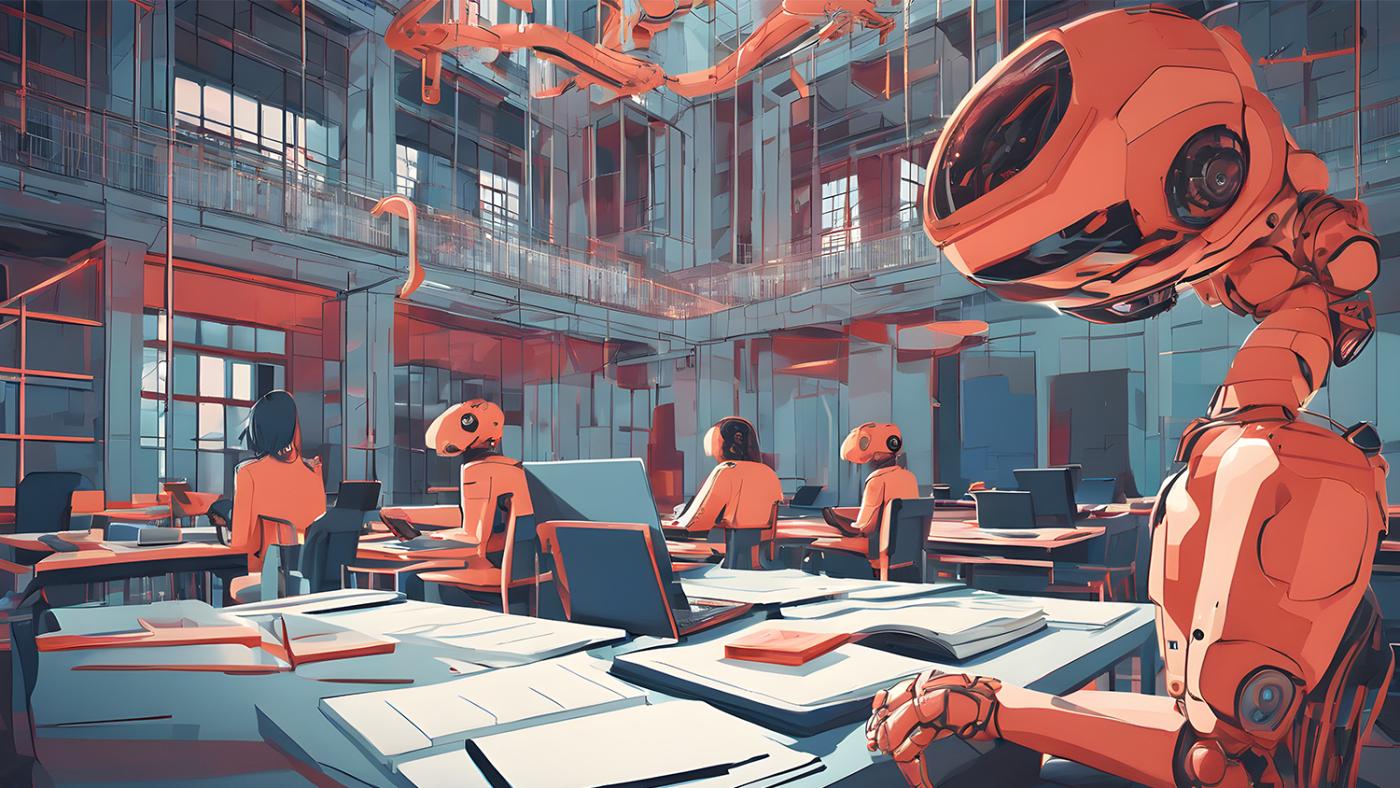A Master's student’s perspective
Embracing AI in Education: an urgent need for academia

Universities are at risk of losing their educational purpose in society and, in so doing, the very essence of academia. Thanks to ChatGPT, every student now has a professor in their pocket, who is willing to answer questions at the desired level of difficulty and detail – something human professors often struggle to do.
In response, universities seem to be focusing on trying to contain ChatGPT's impact by making their tests AI-proof instead of focusing on the pedagogical opportunities it offers. I'm afraid that, if universities don't embrace the AI revolution in their education, another branch of society will and universities will be left behind as empty vessels of their former vibrant selves.
A conversation with ChatGPT
It's hard to put into words how radically different the first three months of my Master's in Utrecht have been because of ChatGPT. For starters, I haven't opened my textbooks once. Instead of spending hours working through chapters that are admittedly well written but lengthy at best and jargon-filled mazes at worst, I take the terms from my lecture slides or a student summary and start a conversation with ChatGPT. First, I ask general questions and try to relate the terms with each other, then I follow with targeted questions to fill the gaps in my understanding. Depending on the teacher, I've stopped asking questions in class. Why put myself in an awkward situation if ChatGPT will be perfectly patient with me after class?
To my grandparents, it must be unimaginable that I have a seemingly bottomless pit of neatly presented knowledge at my fingertips. Similarly, I can't imagine what it must have been like for my grandparents back in the day. When I asked my grandfather, he told me that he couldn't wait to go to high school when he was a kid. Going to high school meant learning about the world and all it had to offer: history, science and the arts. Like many of my peers, I never felt that way about going to school. Ever since I've had agency, I've been able to learn about the world and all it has to offer with the click of a button. To me, school meant having to learn in a cramped classroom full of adolescents who had a hard time keeping quiet. The internet ruined school for me.
Cognitive ladder
Admittedly, ChatGPT still struggles with plenty of tasks. University professors need not worry about their livelihoods – yet. That said, universities do seem to be at risk of losing their edge when it comes to education. In contrast to taking an online course or even watching a lecture series on YouTube, an in-person degree offers the opportunity to engage with professors directly. I’m not saying that this advantage has disappeared. At worst, generative AI technologies like ChatGPT are stochastic parrots that simply reproduce whatever they read online and at best, they are marginally more insightful sums of their parts, which nonetheless remain completely incapable of judging the validity of their knowledge. My point is that an opportunity to improve our educational systems has emerged and universities have been either incapable or unwilling to seize the moment.
Universities should start actively thinking about how they can use their workforce of erudite experts to complement the abilities and inabilities of emerging AI technologies. For starters, this means accepting that certain skills have not stood the test of time. Instead of creating sterile conditions in which to test their students, the assessment will have to change. By doing so, humanity won't be reduced to merely copying our machine assistants. Quite the contrary, it will ensure that humanity keeps climbing the cognitive ladder. I can only hope that universities join humanity as we reach for the stars.
PS - Note that not a single word of this piece was written by ChatGPT. ChatGPT can't peek inside my brain and eloquently put my thoughts on paper. Good writing is hard enough without ChatGPT diluting the process.